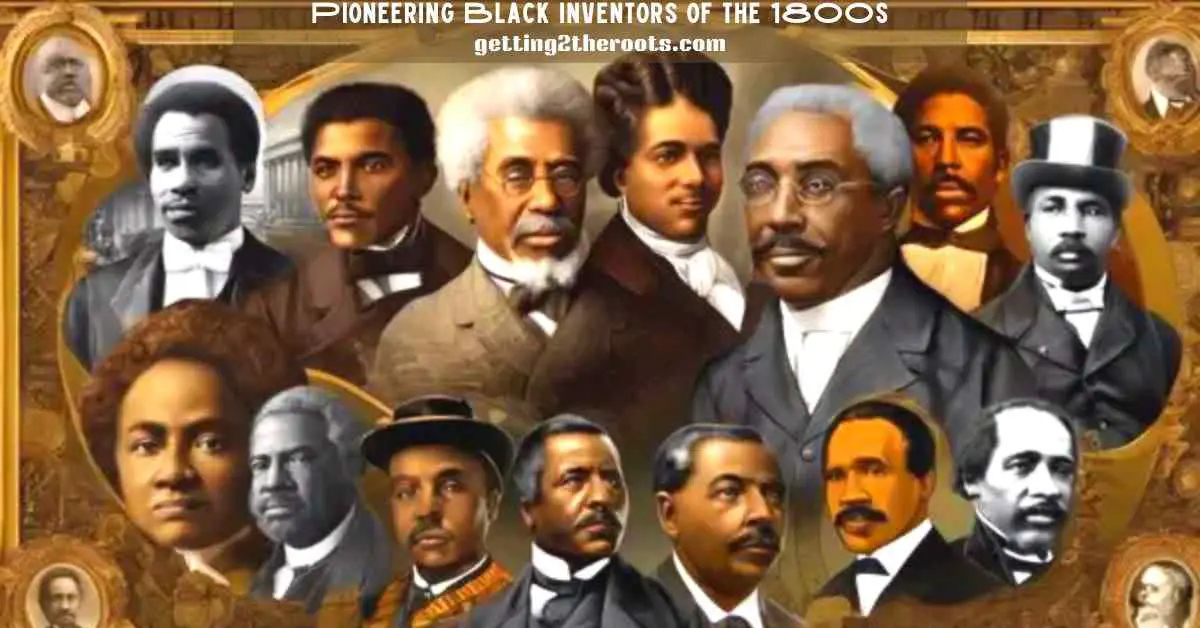Black inventors of the 1800s demonstrated remarkable resilience and ingenuity, embodying technological skill and innovation during a challenging era.
Marked by the brutalities of the trans-Atlantic slave trade and extreme inequalities, the era was challenging.
Despite this, Black inventors of the 1800s shone brightly. They emerged as beacons of strength and creativity.
Despite confronting racial discrimination and societal exclusion, they persevered actively. Their significant contributions across various fields not only showcased their determination but also secured their rightful place in history.
This exploration goes beyond just their inventions. It delves into their lives, motivations, and socio-cultural backgrounds, examining the challenges they overcame.
But as we highlight their major inventions, we will analyze their technical aspects and innovative nature. Also, we will look at the immediate and far-reaching impacts of their work.
These Black inventors of the 1800s faced racial discrimination and societal exclusion. Yet, they found ways to contribute significantly to various fields. They etched their names into history.
This exploration goes beyond just recounting their inventions. It delves into their lives, motivations, and backgrounds.
We will examine the challenges they overcame. Our focus includes their significant inventions. We analyze their technical aspects and innovation. We’ll also look at their work’s immediate and long-term impacts.
Explore the untold stories and experiences of enslaved life in Covington, Smith, and Jones Counties. [Clicking Here].
Join us on YouTube to delve into the captivating history of the early 1700s and 1800s. Together, we’ll uncover this significant chapter of our shared heritage. [Click Here].
What is the chronological overview of Black Inventors of the 1800s?
The United States boasts a notably rich history of scientific innovation and invention. This history is prodigiously diverse. Specifically noteworthy are contributions made by Black Inventors of the 1800s.
Furthermore, contrary to popular belief, Black Inventors of the 1800s made contributions that went beyond George Washington Carver’s work with peanuts.
There is a lineage of lesser-known African American inventors. Moreover, their pioneering innovations are highly essential. These innovations continue to influence our lives today.
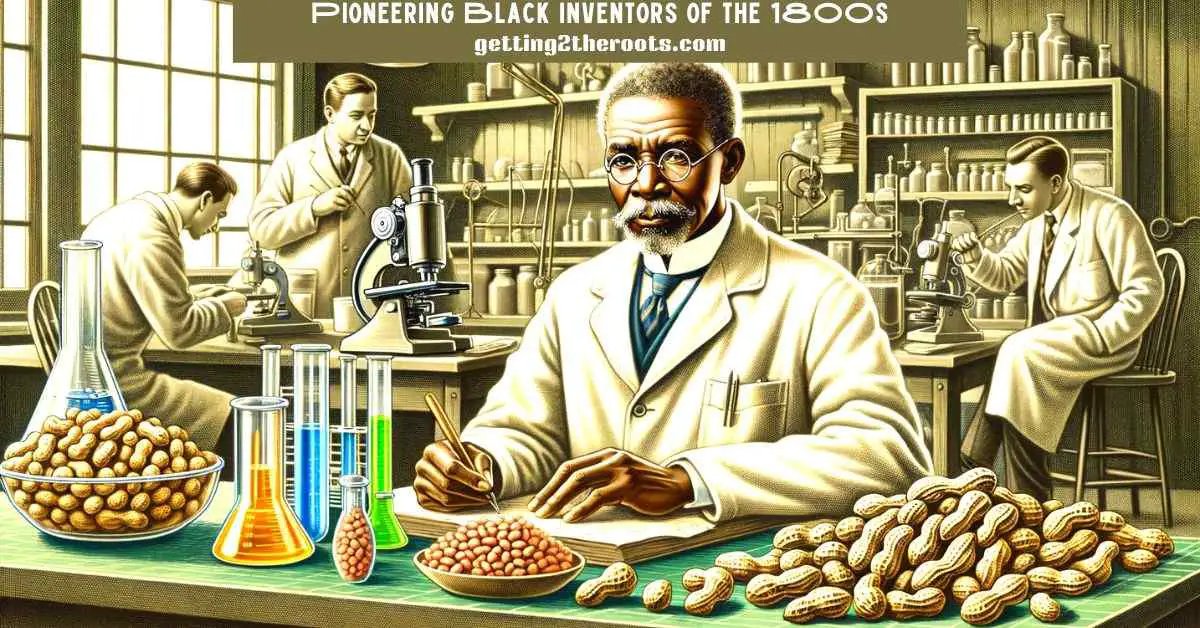
Benjamin Banneker: Highlighting Black Inventors of the 1800s
One such innovator is Benjamin Banneker, whose contributions to astronomy continue to intrigue scholars.
Born in 1731 to freed slaves in Maryland, Banneker developed a fascination for the cosmos. Self-taught, he mastered various academic fields, including geometry and trigonometry.
This knowledge helped him create a fully functioning wooden clock in 1753. His achievement brought him respect and an appointment in 1791 to survey the Federal District, now Washington, D.C.
Banneker was also known for accurately predicting a solar eclipse in 1789. His predictions, published in almanacs, provided critical information for farmers and showcased the astronomical knowledge of the era.
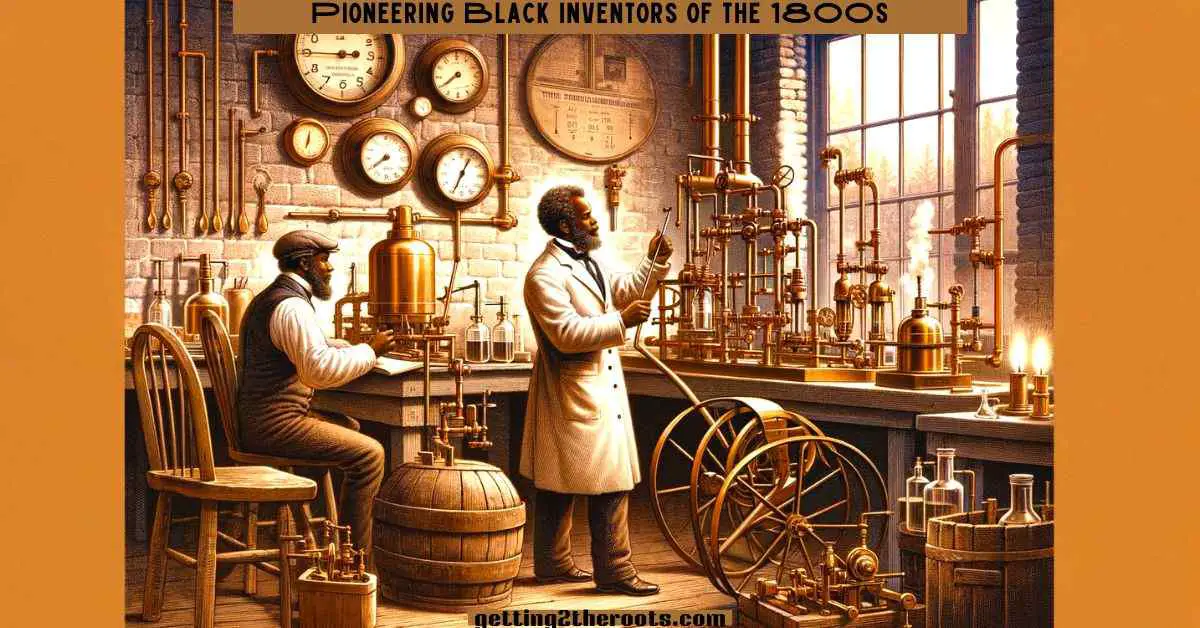
Black Inventors of the 1800s: Thomas L. Jennings
Thomas L. Jennings was a contemporary of Banneker’s era. Born free in 1791, he became the first African American to receive a patent in 1821.
This achievement bestowed credibility on his name. It also paved the way for other African American inventors.
What was his patent for? A dry-cleaning process he named “dry scouring.” Beyond his inventiveness, Jennings passionately supported abolitionist causes.
He used his income to free family members from slavery. Additionally, he funded abolitionist activities.
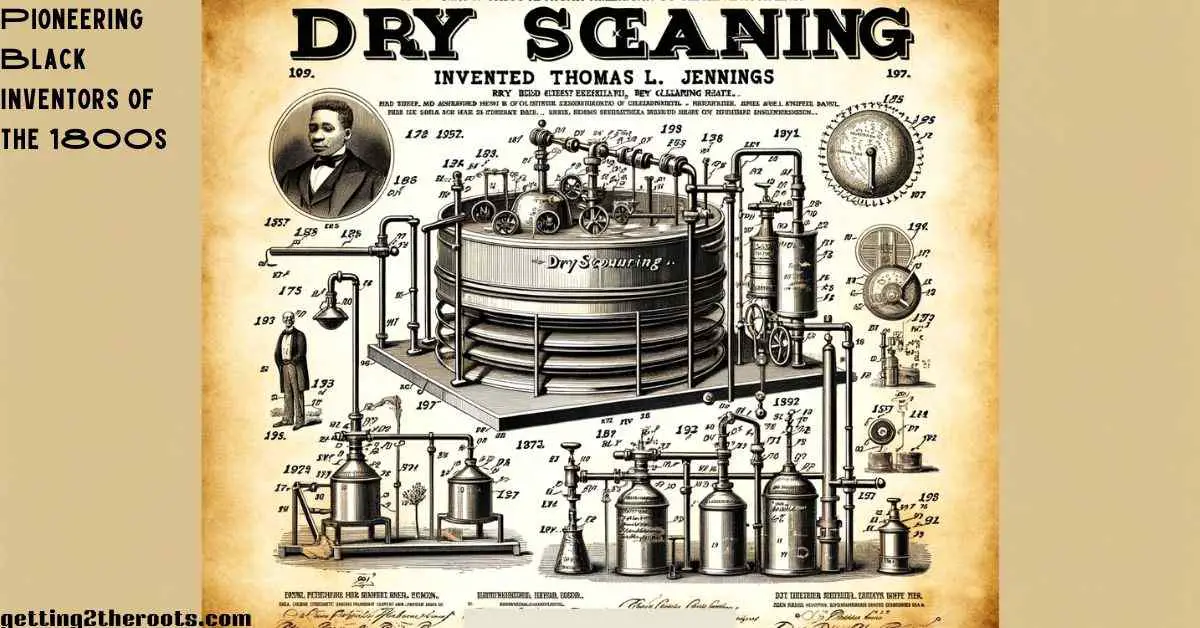
Norbert Rillieux: Revolutionizing Industry as One of the Black Inventors Before 1870
Norbert Rillieux, born in 1806, stands out as another truly inspiring inventor among the Black inventors of the 1800s. He was a successful engineer and inventor.
Rillieux’s mixed racial heritage meant he faced racial prejudice. However, his brilliance shone through in his understanding of thermal dynamics. This expertise led him to redefine the sugar refining process.
In 1843, he introduced the multiple-effect evaporative system. This innovation revolutionized the sugar industry. It made sugar more accessible and affordable for the masses.
Rillieux’s work stands as a commendable testament. It showcases the ingenious capabilities of African American inventors. This is particularly notable in the face of oppressive societal norms.
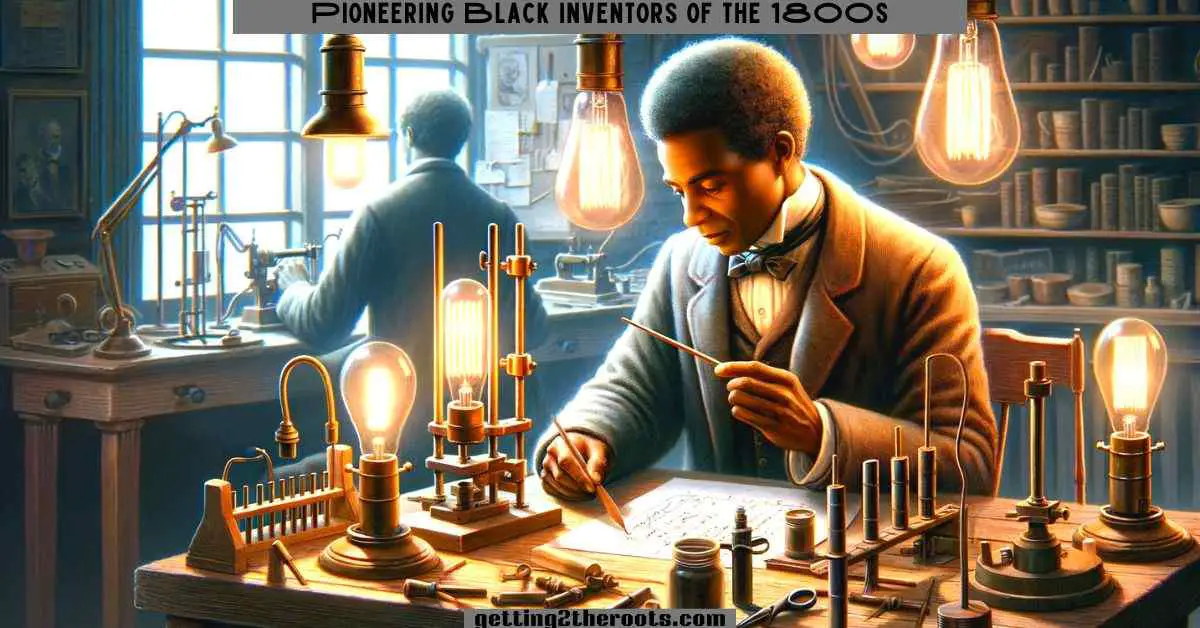
Uncovering Brilliance: The Legacy of Black Inventors of the 1800s
The story of the Black Inventors of the 1800s is a tapestry of resilience, brilliance, and relentless pursuit of knowledge.
Looking past the social and legislative barriers Black inventors faced, we see their significant impact.
Their contributions serve as beacons of inspiration. They illuminate the pages of American history. This reality is something we continue to celebrate in modern times.
They were visionaries, whose innovations transcended their time and continue to resonate, as a testament to their enduring influence and passion towards their chosen fields.
Therefore, it is essential for research in this historical area to continue. The goal is to uncover diverse characters and their contributions that have been overlooked or forgotten.
This effort aims to achieve a more comprehensive and inclusive understanding of scientific and technological history.
As we strive to decipher the past, we pay homage to these trailblazing minds, rightfully placing them in the annals of America’s pioneering inventors.
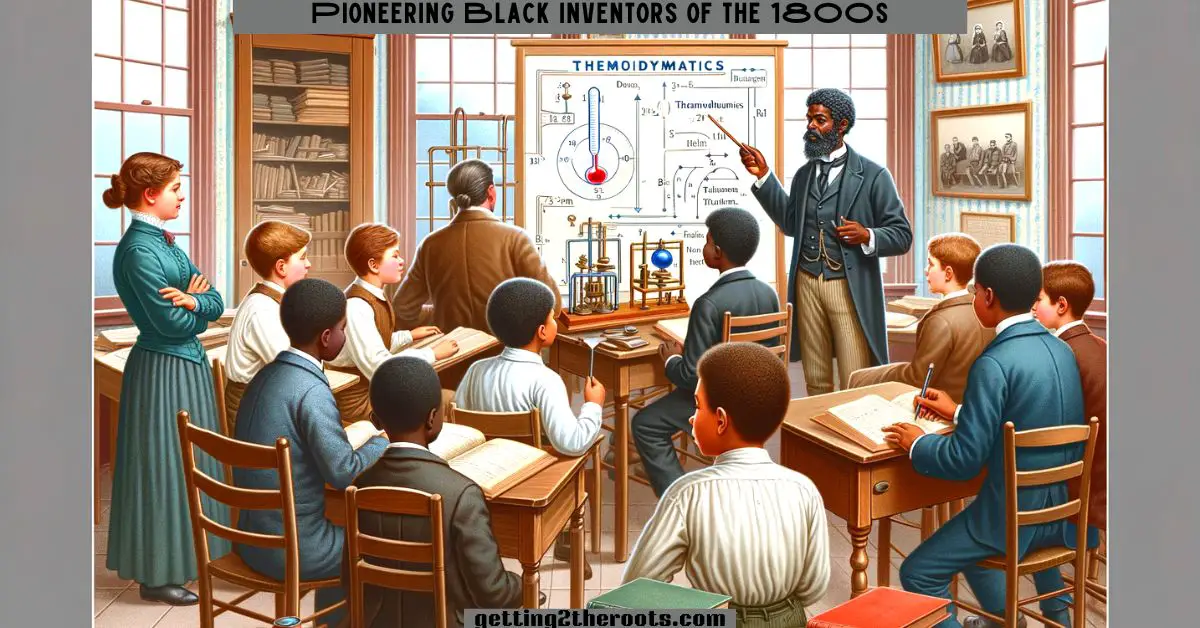
How Did Black Inventors of the 1800s Shape Our Technological Landscape?
The Revolutionary Impact of Steam-Powered Machines by Davidson L. Hawks
Transitioning from the pivotal achievements of Banneker, Jennings, and Rillieux, we shift focus. It becomes paramount to highlight the light and steam-powered inventions of Davidson L. Hawks.
Additionally, we must recognize the significant but hardly-remembered inventions of Henry Boyd. Both inventors were central figures in the pre-1870 era.
Davidson L. Hawks: Master of Steam-Powered Innovation
Davidson L. Hawks merits praise for his invention of steam-powered machines. Hawks proved competent and productive in an era before the widespread adoption of electricity, when steam was the primary power source.
Steam-powered locomotives and ships, factories, and various machines were essential to the Industrial Revolution, enhancing the economy significantly.
Hawks’s ingenuity challenges the barriers of the time, demonstrating leadership in one of the most significant technological shifts in human history.
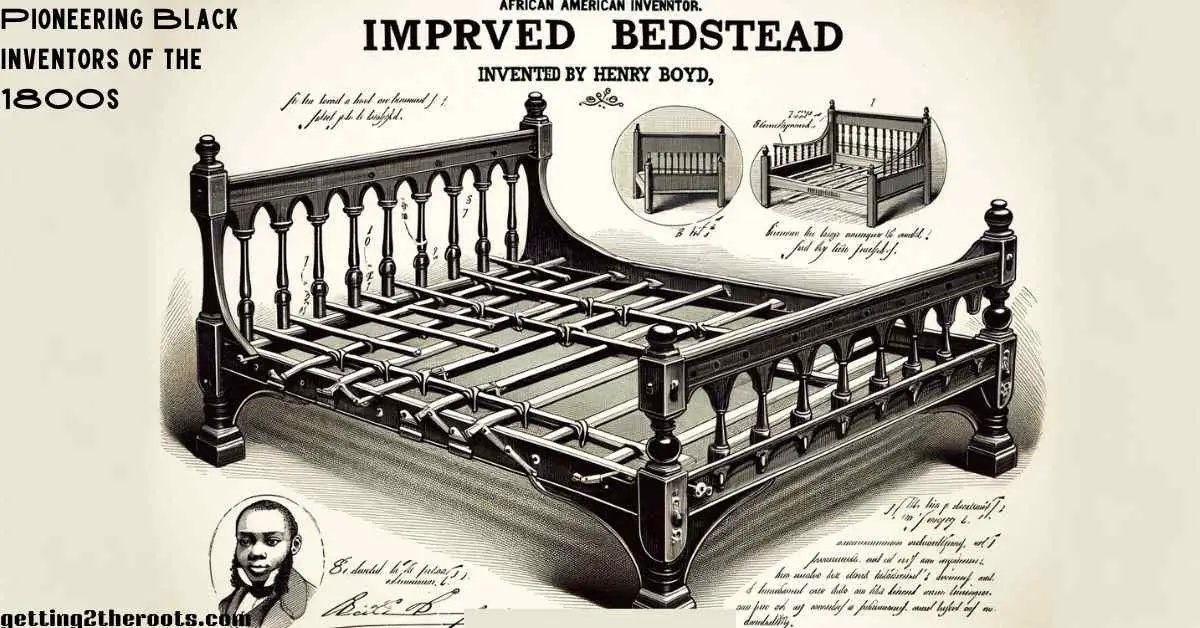
Henry Boyd: Innovator of Durable and Practical Design
Meanwhile, Henry Boyd, a deeply passionate carpenter and former slave, patented a unique design for a bedstead in 1833. The bedstead Boyd created gained wide appreciation for its durability.
This durability was achieved through a network of interlocking joints. It demonstrated Boyd’s flair for precision and understanding of utilitarian design.
It’s essential to notice that this came decades before the invention of the mass production line. Boyd’s innovation highlighted his perseverance in the face of overwhelming societal challenges.
Additionally, it emphasized the power of keen observation. His work also showcased thoughtful problem-solving. Placing significant emphasis on the pre-1870 era’s inventions illuminates a key aspect.
It highlights the impact of Black Inventors of the 1800s. Their contributions significantly influenced society and technological advancement.
By doing this, we are not merely opening past pages of African American history. Instead, we are viewing invention as it was then—raw and pioneering.
This perspective shows invention is undeterred by societal limitations. This in-depth look brings salience to several aspects. It underscores the contributions of Black inventors.
Their passion for testing the limits of technology is evident. Additionally, their enduring spirit in overcoming societal and professional challenges is highlighted.
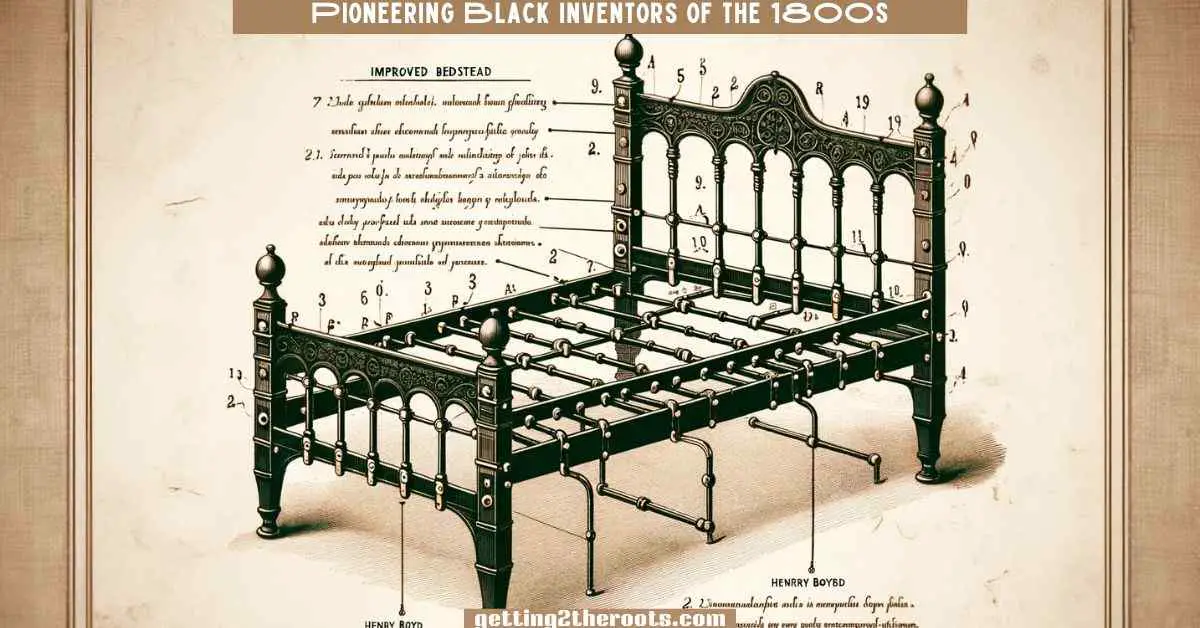
The Enduring Legacy of Black Inventors of the 1800s
In conclusion, one can view the heart of invention as the ability to see past societal measures, to persevere, and to progress through fortitude and creativity.
The indelible influence of these early Black inventors of the 1800s serves to add significant weight and credence to our understanding of America’s technological history.
Their ability to surpass societal and racial keyholes is commendable. They had a knack for invention. Additionally, they showed endurance in the face of societal barriers. These qualities created a legacy that still echoes through generations.

Societal Impact and Legacy
Davidson L. Hawks: A Trailblazer in the Steam Power Revolution
This section of the discussion pivots to the epochal accomplishments of Davidson L. Hawks. Hawks, a Black Inventor of the 1800s, invented and innovated steam-powered machines.
He was an active participant in the steam power revolution, a technological metamorphosis that cycled America into a new industrial age.
The steam power revolution held immense implications for industry and transportation, making this period a turning point in technological history.
The influence of steam-powered machines was not confined within the boundaries of the Industrial Revolution, though; its ripple effects are still palpable in contemporary society.
For this reason, the ingenuity of contrasting inventors like Hawks, who had a hand in igniting the spark of a new era, finds a particularly bright spotlight in the annals of history.

Henry Boyd: Innovator of Utilitarian Design
Turn that spotlight onto the bedstead firm of Henry Boyd, and we get to see another Black inventor of the 1800s who asserted significant influence.
Born a slave, Boyd bought his own freedom and, in 1833, patented a design for a wooden bedstead that made a mark in utilitarian design.
His bedstead was heralded for its practicality, with a knack for precision and a simple yet robust design that appealed strongly to the American public.
Beyond the utilization of an individual’s home, his bedstead was soon adopted widely, making it a significant contribution to the society of his time.
It is Boyd’s commitment to workmanship and intellectual property rights that truly stands out. This is encapsulated in his fervent defense of his 1843 patent.
His actions shine through as a true testament to his tenacity and ingenuity. Moving beyond the invention itself, Boyd’s determined approach embodies the spirit of Black Inventors of the 1800s.
It captures the raw pioneering instinct of these inventors. This illustrates how they were undeterred by societal outlooks and barriers.
They held their ground and went on to transform society.
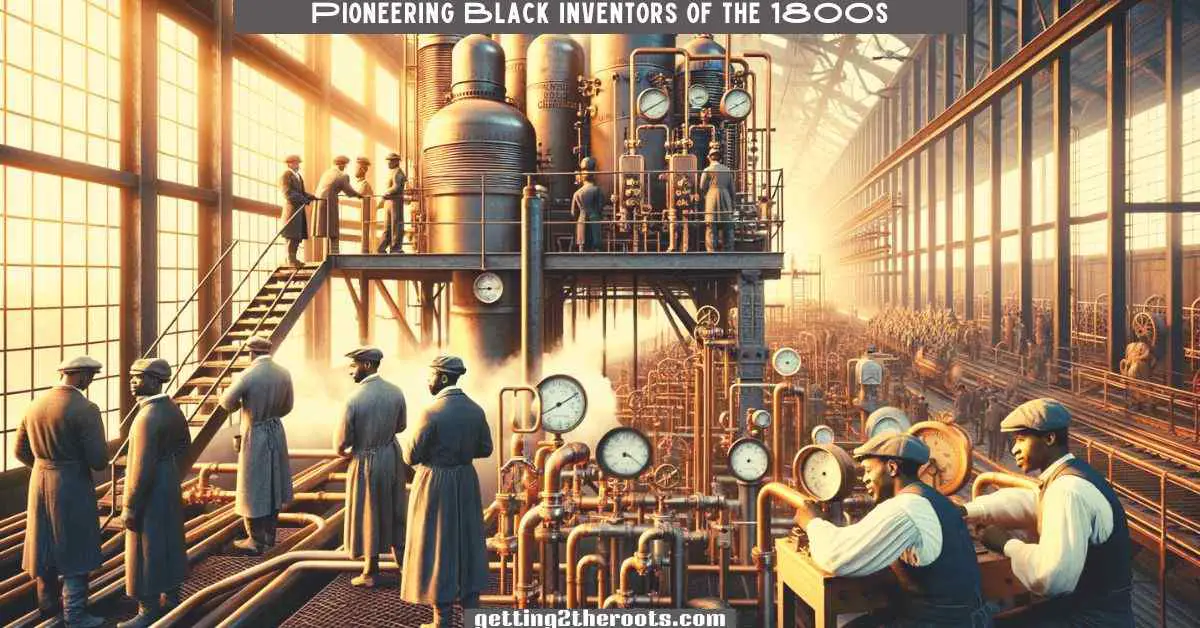
The Resounding Impact of Black Inventors of the 1800s: Shaping Society and Technology Against Odds
The impact of Black Inventors of the 1800s on society and technological advancement pre-1870 cannot be overstated.
They are testaments to a time when inventiveness was raw and unfiltered, constrained neither by societal prejudices nor by existing knowledge.
The work of these inventors powerfully showcases something fundamental. Invention, at its core, is not constrained by external measures. Rather, it carries its own significance.
Consequently, it often dismisses external influences with resounding It is this spirit, the unwavering ‘can-do’ attitude, that stands out.
Coupled with the ability to surpass societal and racial obstacles, it defines their character. Moreover, their will to create a lasting legacy embodies the very heart of innovation. This spirit and perseverance are what we celebrate.
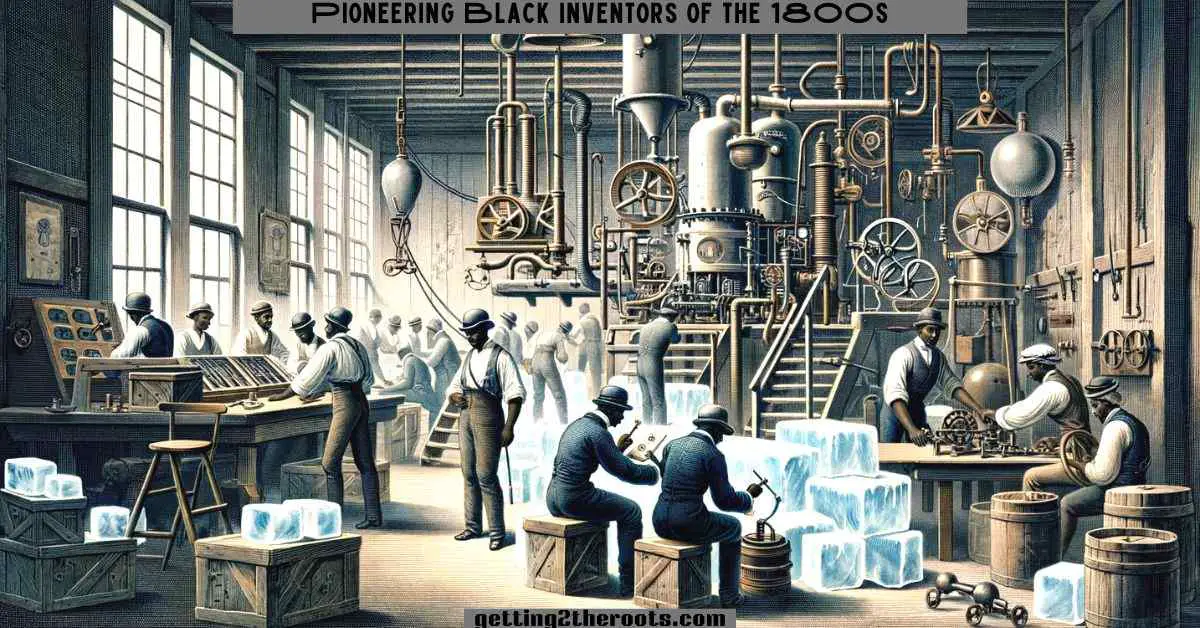
Conclusion: Reflecting on the Legacy of Black Inventors of the 1800s
In conclusion, on closer inspection, the contribution of the early Black Inventors of the 1800s to America’s technological history is both salient and vast.
The quiet echo of their contributions lives on, deeply entrenched in modern life. It serves as a call to remember and respect their impact. Additionally, it reminds us to revere the power of ideas.
Even more so, it serves as a poignant reminder. It shows us the profound ways in which inventors, when given the chance, can embody exceptional human capabilities.
These include persistence, resilience, and groundbreaking innovation. As a result, they left an indelible mark on history.
As we trace the narrative of the Black Inventors of the 1800s, it is evident that their profound influences shaped the landscape of modern technologies.
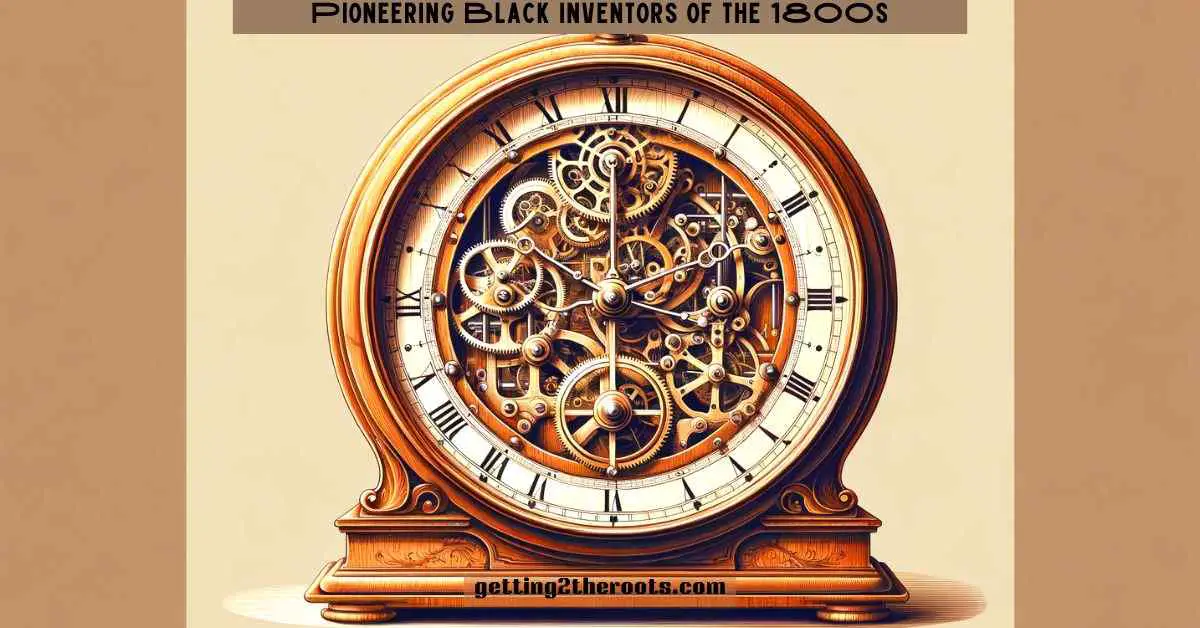
By laying the foundations in their respective fields, they undoubtedly amplified opportunities. This effort benefited future African-American inventors.
Concurrently, it catalyzed the broader transformation of society. Thus, through their groundbreaking inventions, they achieved more than just industrial changes and productivity enhancements.
They also fostered broader social changes. This led to greater inclusivity in society. Their indomitable spirit and relentless pursuit of innovation have continued to resonate throughout history.
They remind us that invention is not just for the wealthy or privileged. Indeed, it can be the medium of the marginalized, the tool of the oppressed, and the voice of the voiceless.

Uncovering the Stories of Black Inventors of the 1800s
- Who were some of the most influential Black inventors of the 1800s? Answer: Notable inventors include Benjamin Banneker, Norbert Rillieux, and Thomas L. Jennings, among others. Their innovations spanned various fields, significantly impacting technology and society.
- What challenges did Black inventors face in the 1800s? Answer: These inventors faced racial discrimination, societal exclusion, and often limited access to resources and intellectual property rights, making their achievements even more remarkable.
- How did the inventions of Black individuals in the 1800s impact society? Answer: Their inventions led to advancements in fields like agriculture, engineering, and everyday utilities, improving efficiency, productivity, and quality of life.
- Are there any lesser-known Black inventors from the 1800s whose contributions were significant? Answer: Yes, there were many, such as Henry Boyd and Davidson L. Hawks, whose contributions, though less known, played a crucial role in technological and societal progress.
- How has the recognition of Black inventors from the 1800s evolved over time? Answer: Over time, there has been a growing recognition of these inventors’ contributions, with more research and documentation shedding light on their vital role in history.

